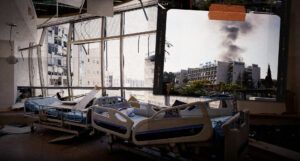In yet another display of selective skepticism, BBC journalists criticized the IDF for not inviting them on a media tour of Hamas tunnels found beneath a Gaza hospital. But the real problem isn’t access—it’s bias.
Even The New York Times, known for its skepticism of Israel, confirmed the existence of the tunnel network under the hospital. Despite this, the BBC continued casting doubt, implying that without firsthand access, they couldn’t verify the IDF’s evidence.
But foreign journalists in Israel have numerous ways to verify footage: access to colleagues, military-escorted media trips, industry WhatsApp groups, and shared reporting resources. Instead of using those tools, the BBC chose to focus on what they weren’t shown.
By doing so, they shifted the story from Hamas’ exploitation of hospitals to questioning Israel’s credibility—while giving far less scrutiny to information coming directly from Hamas.
Verification is a core part of journalism. But applying that standard only to Israel while giving terrorist sources a pass isn’t journalism—it’s an agenda.
If the BBC wants to uphold journalistic standards, they should start by applying equal skepticism to every source, not just the ones they politically oppose.



